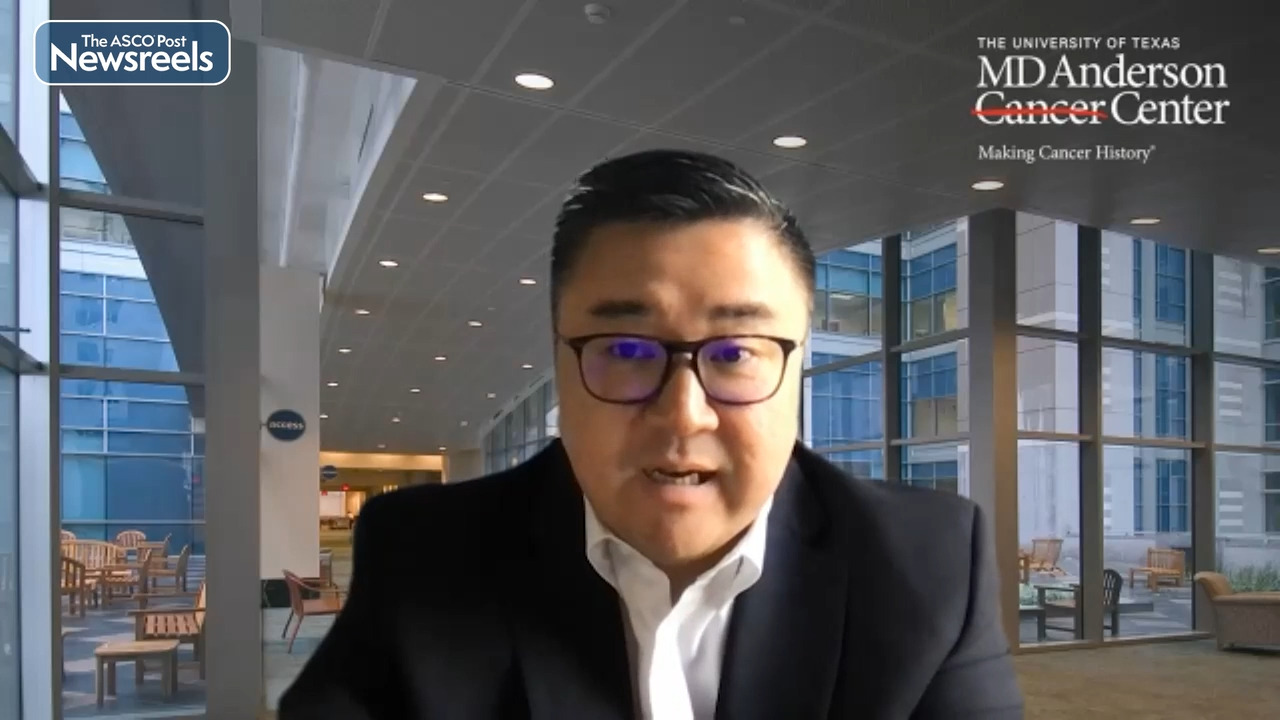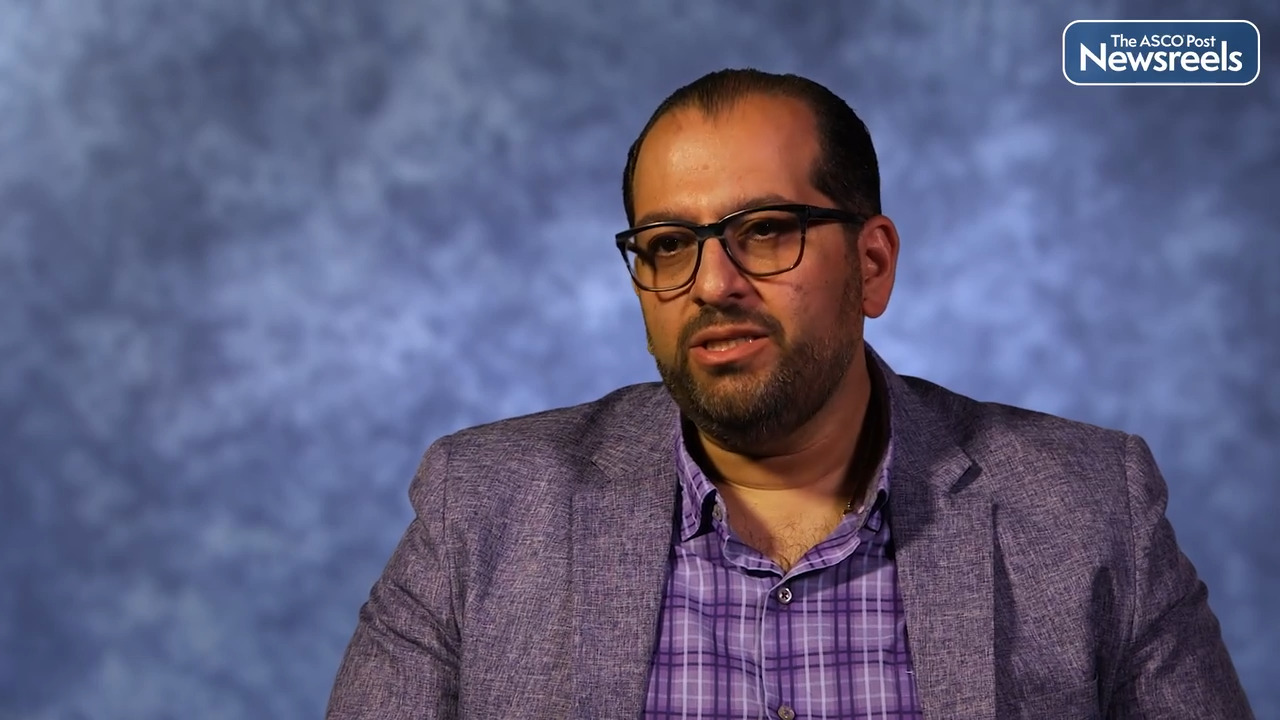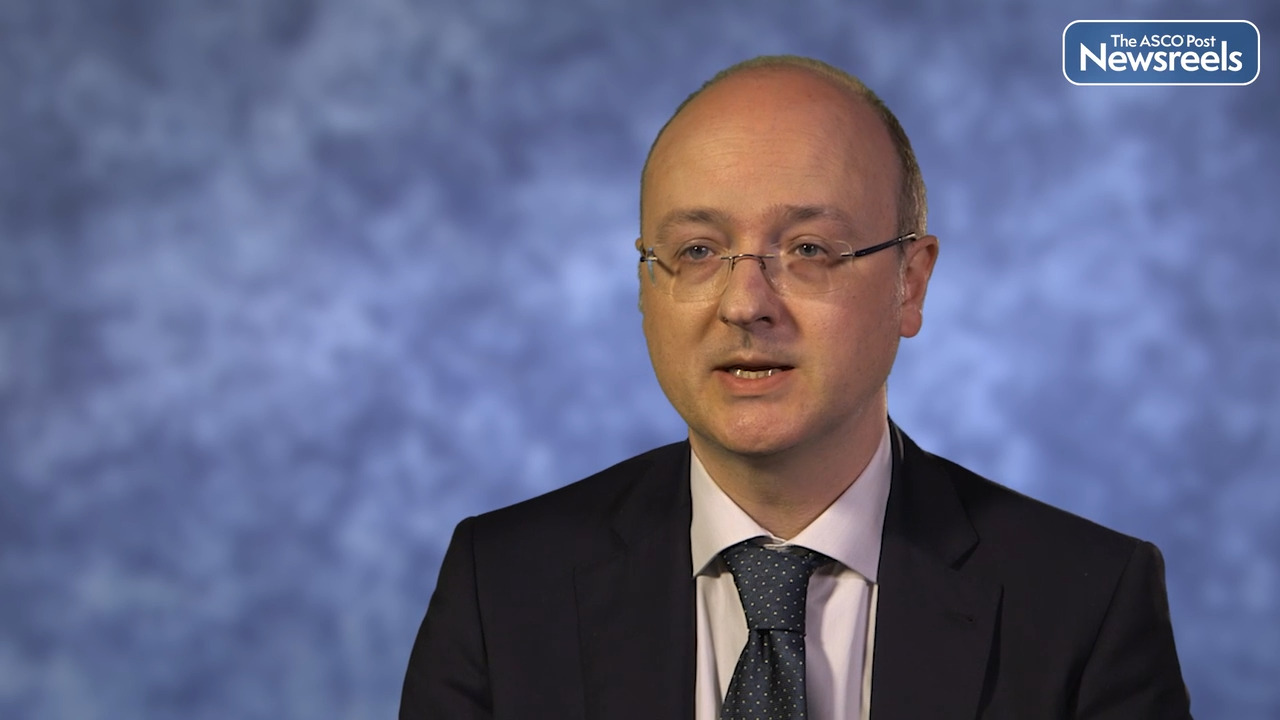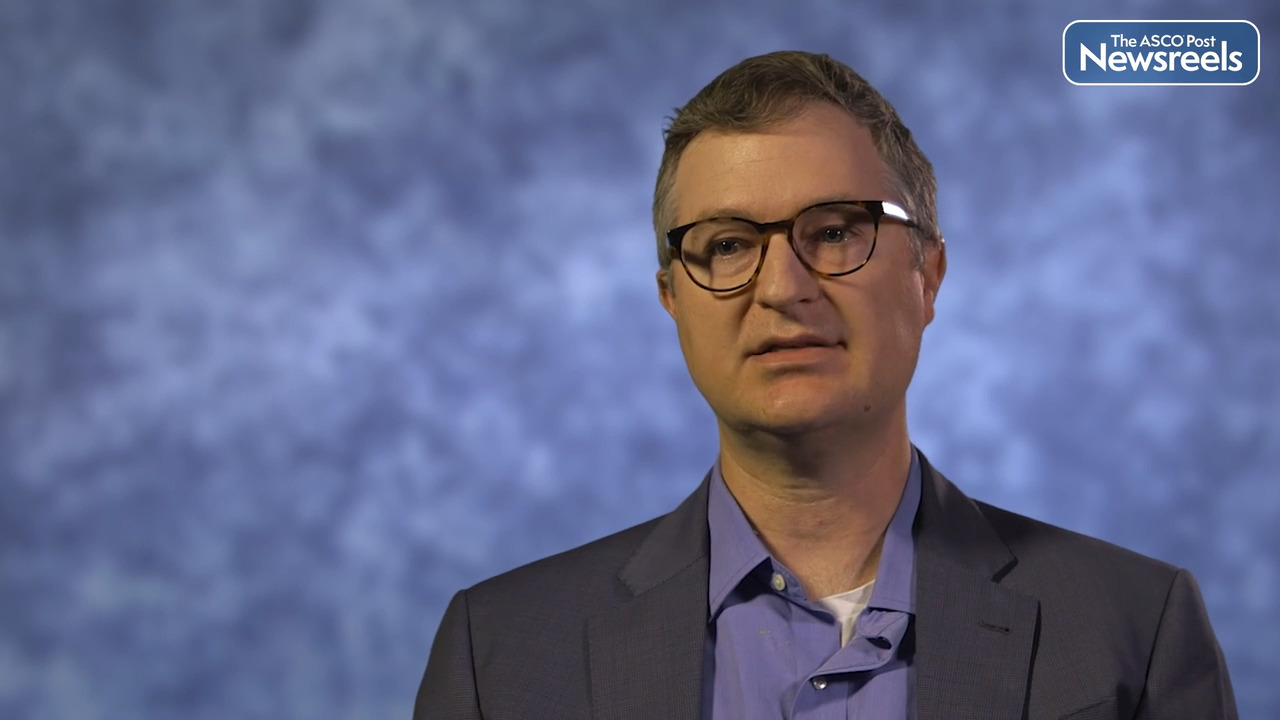Nicolas Girard, MD, PhD, on NSCLC: New Data on Event-Free Survival With Nivolumab Plus Platinum-Doublet Chemotherapy
AACR Annual Meeting 2022
Nicolas Girard, MD, PhD, of the Institut Curie, discusses findings from the phase III CheckMate 816 trial, which is the first study with an immunotherapy-based combination to demonstrate improved event-free survival and pathologic complete response in the neoadjuvant setting for patients with resectable stage IB to IIIA non–small cell lung cancer. The results may benefit the 30% to 55% of patients whose cancer recurs after surgery (Abstract CT012).
The ASCO Post Staff
Timothy A. Yap, MBBS, PhD, of The University of Texas MD Anderson Cancer Center, discusses results from the PETRA study, a first-in-class, first-in-human trial of the next-generation PARP1-selective inhibitor AZD5305 in patients with BRCA1/2, PALB2, or RAD51C/D mutations in advanced or metastatic ovarian cancer, HER2-negative breast cancer, pancreatic, or prostate cancer. Target engagement was demonstrated across all dose levels, and antitumor activity was observed in selected tumor and molecular subtypes.
The ASCO Post Staff
Josh Neman, PhD, of the Keck School of Medicine, University of Southern California, discusses the distribution of brain metastasis to preferential brain regions that vary according to cancer subtype, how neurotransmitters respond, and the ways in which the central nervous system acclimates (Abstract SY32).
The ASCO Post Staff
Iván Márquez-Rodas, MD, PhD, of Spain’s Hospital General Universitario Gregorio Marañón, discusses final results of the phase II SPOTLIGHT203 study of systemic pembrolizumab in combination with intratumoral BO-112 for patients with advanced melanoma refractory to anti–PD-1–based therapy. The regimen achieved an overall response rate of 25% and a disease control rate of 65% (Abstract CT014).
The ASCO Post Staff
David A. Barbie, MD, of Dana-Farber Cancer Institute, discusses his laboratory’s studies, showing that malignant pleural mesothelioma, an inflamed cancer type with marginal response to immune checkpoint blockade, demonstrated high tumor cell STING expression and response to STING agonists in combination with natural killer cell therapies ex vivo. STING is the tumor cell stimulator of interferon genes (Abstract 4168).
The ASCO Post Staff
Christine A. Iacobuzio-Donahue, MD, PhD, of Memorial Sloan Kettering Cancer Center, discusses her research on the evolutionary features of advanced stage pancreatic cancers and the insights that may be used to help improve patient outcomes (Abstract PL05).





